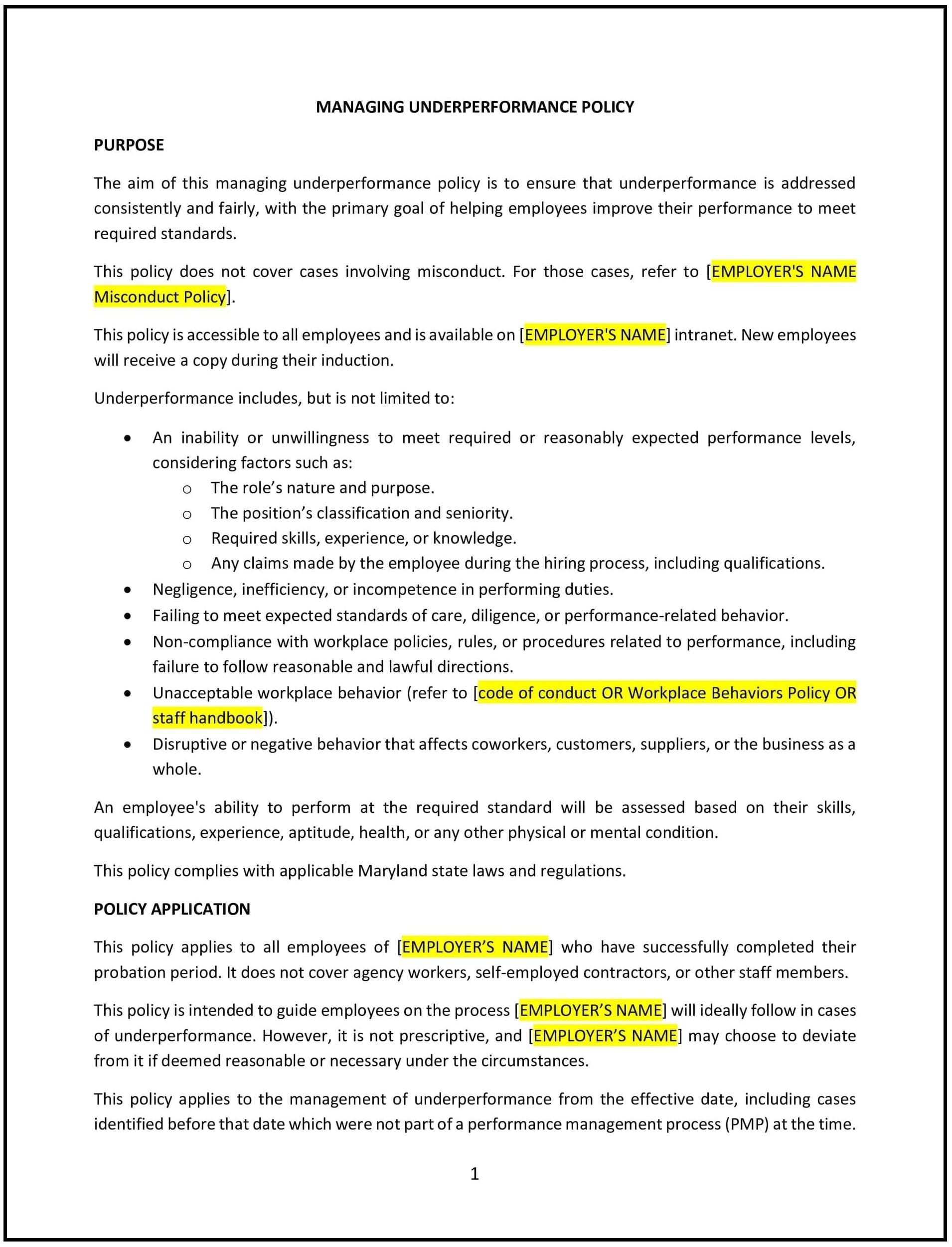Managing underperformance policy (Maryland): Free template
Got contracts to review? While you're here for policies, let Cobrief make contract review effortless—start your free review now.

Customize this template for free
Managing underperformance policy (Maryland)
This managing underperformance policy is designed to help Maryland businesses establish a fair and consistent approach for addressing and improving employee performance issues. It outlines procedures for identifying underperformance, providing support, and taking corrective actions when necessary.
By adopting this policy, Maryland businesses can enhance productivity, promote fairness, and maintain a positive work environment.
How to use this managing underperformance policy (Maryland)
- Define underperformance: Clearly specify what constitutes underperformance, such as failing to meet job expectations, missing deadlines, or poor teamwork.
- Establish early intervention: Encourage managers to address performance concerns promptly through informal discussions or coaching.
- Outline performance improvement plans (PIPs): Detail how PIPs are developed, including specific goals, timelines, and measurable outcomes.
- Provide support resources: Offer tools such as training, mentoring, or access to employee assistance programs to help employees address performance challenges.
- Include documentation requirements: Emphasize the importance of documenting discussions, feedback, and actions taken during the performance management process.
- Address escalation procedures: Specify the steps for escalating persistent underperformance, including formal warnings and potential termination.
- Reflect Maryland-specific considerations: Ensure the policy aligns with state employment laws, such as those related to wrongful termination or workplace fairness.
Benefits of using this managing underperformance policy (Maryland)
Implementing this policy provides Maryland businesses with several advantages:
- Promotes fairness: Ensures all employees are treated consistently and given opportunities to improve.
- Enhances productivity: Helps employees address performance gaps and contribute more effectively.
- Reduces legal risks: Mitigates potential disputes by following documented and transparent procedures.
- Supports accountability: Reinforces the importance of meeting job expectations and taking corrective action when necessary.
- Aligns with Maryland standards: Reflects state laws and industry best practices for performance management.
Tips for using this managing underperformance policy (Maryland)
- Train managers: Provide training on identifying and addressing performance issues fairly and effectively.
- Communicate expectations: Ensure employees understand job expectations and the consequences of not meeting them.
- Monitor progress: Regularly review employee performance during the PIP period and provide constructive feedback.
- Encourage collaboration: Work with employees to develop achievable performance goals and improvement strategies.
- Review regularly: Update the policy to reflect changes in Maryland employment laws or workplace practices.